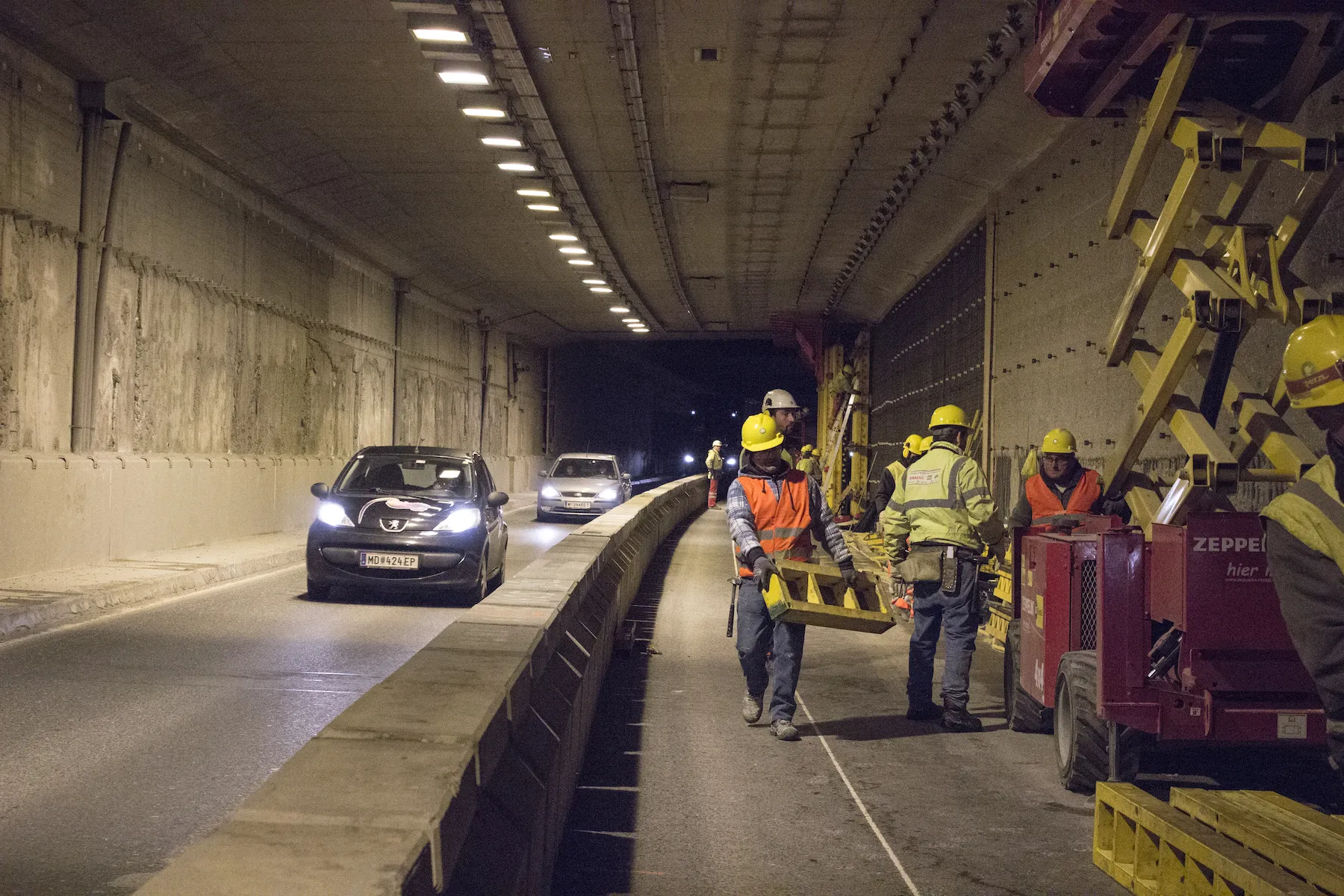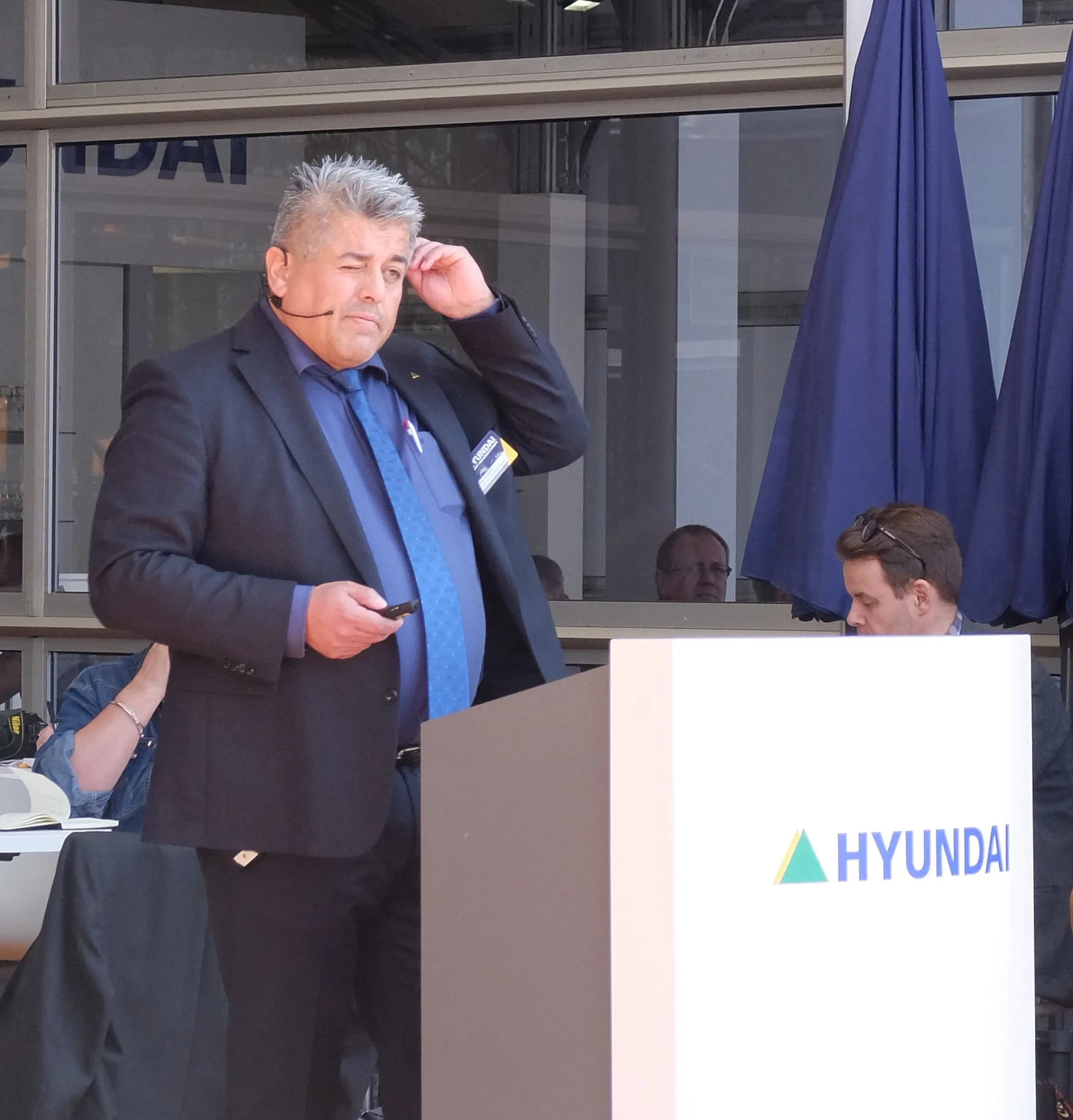It’s live onsite auction day in Donington, UK and it’s noisy. It’s also raining in early morning but that doesn’t put off the gathering crowd
Buyers are milling around parked machinery. They kick tyres and slam doors. Some are behind the wheel, gingerly nudging vehicles frontwards and backwards or raising and lowering booms. Their partners stand a few metres away scrutinising the machine’s movements.
Amid a haze of blue exhaust, dumpers slowly parade nose to tail in front of the bidding pavilion as the auctioneer’s amplified patter booms out - Sold!
“The UK is a world leader in renting equipment so many of the lots are offered for sale by rental companies,” says Rupert Craven,
Everything will be sold by the end of the day so is there any sentimentality towards the equipment by hard-headed business owners and work-hardened operators?
“Oddly, yes,” says Craven. “We get a lot of sellers asking to have one last drive before or even after it is sold, or to be the driver who is parading the machine. But we don’t allow this.”
RBA held its first European auction in England’s Liverpool docks in 1987 and shifted large amounts of construction equipment straight off ships that had arrived from the Falklands. Contractors were selling their equipment that had helped rebuild the Falklands after the brief war with Argentina in 1982.
Globally, Ritchie Bros. now puts on 340 auctions a year and its largest on-site auction is in Florida, just outside Orlando. An auction there can move upwards of 11,000 lots. However, Edmonton, in the western Canadian province of Alberta, is giving the US site a run for its money. The seven auctions at the 2.5 hectare Donington site are among the 35 that take place around Europe. Other permanent sites are in the Netherlands, Finland, Germany, Italy, France and Spain.
The main event
• Number of auction sellers: 132
• Number of lots sold: 1,650+
• Lots sold to online bidders: 1,032
• Registered bidders: 1,010+ from 69 countries
• 330+ on-site bidders and 670+ online bidders
GOING, GOING, GONE!
• 2009 Metso LT1110 Lokotrack crawler impact crusher - €116,370 (US$128,450 / £97,500)
• 2013 Komatsu PC360LC-10 hydraulic excavator - €91,900 (US$101,440 / £77,000)
• 2010 Caterpillar D6N LGP crawler tractor - €87,130 (US$96,175 / £73,000)
In April last year, a Donington buyer handed over £450,000 – nearly €540,000 at today’s exchange rate - for a slightly used 2013 Liebherr R 956LC high-reach tracked excavator converted for demolition. It had only 879 hours on the clock.
Live auctions can be long affairs, starting around 9am and then full on, changing auctioneers periodically, until the hammer comes down for the last time at 7pm or so. Auctions in “Ring One” – where equipment is paraded in front of buyers - start with small lots, such as vans, utility dumpers, tractors and then moves into wheeled excavators and backhoe loaders, site dumpers up to nine tonnes. Big ticket items, such as tracked excavators, dozers and loaders usually are paraded around mid-day.
The highest value lots in a product group, such as excavators or dumpers, go on the block first. From the buyer’s point of view, it’s likely to be their largest purchase of the day, so if they fail in their bid, then they know what cash they have for other likely less expensive items. Otherwise, explains Craven, buyers might pass on the less expensive items in hope of having enough cash for larger more expensive lots that come later.
But buyers have had a day or two prior to the live auction to get on site and examine equipment, even bring in a mechanic to tinker a bit with the machinery to get a better idea of its condition.
On auction day, there is little time to think. A lot sells normally in 60 seconds. At this auction, just over 1,650 lots had to be sold. Of this around 500 will be Ring One auctioned, meaning the vehicle is driven past the bidders’ box for all to see during the bidding. In another building, upwards of 250 lots will be Ring Two Virtual auctioned, meaning big lots such as crawler items too large to parade are shown on screen.
Smaller items, attachments and consumer products are exclusively sold via online Ring Three, e-Bay style transactions. But, unlike e-Bay and in the interest of transparency, there is no “buy-now” option, says Craven. It’s an even playing field wherever on the planet a buyer is sitting. Bidding usually starts on-line several days before the on-site auction takes place and finishes during the live auction. At Donington this time, it finished the day after and around 900 items were sold.
Normally, around half the equipment by value goes abroad to Europe and Africa. “The big question today is how the weaker British Pound affect prices,” says Craven. With British voters deciding last June to break away from the European Union, UK currency fell from around €1.42 to buy a British pound to €1.17 by the time of the auction. Because bidding is in pounds, prices are cheaper for foreign buyers but could be more expensive for UK buyers.
One UK buyer told World Highways that he saw a large John Deer tractor get snapped up “for silly money” by a buyer from Hungary. “Prices are more expensive now since the vote. I can’t compete.”
A Dutch buyer said prices seem to be the same. Most of what he buys in Donington he sells on to clients in Eastern Europe, including Russia.
Craven estimates that bidders have come from, or are sitting in, around 50 countries worldwide. A lot of the equipment arrived from overseas and is likely headed back out of the UK, destined for Russia, some of the old Soviet Union countries, as well as Romania, Hungary and Bulgaria.
Some sites specialise in particular items, says Craven. In Germany, agricultural items are prominent while in the Netherlands large industrial equipment are big sellers. Finnish auctions are noted for showcasing larger machines used in rougher, rockier terrain because of that country’s geography. Ritchie Bros. advises its sellers about which auction site will probably attract the best price for their equipment.
RBA also runs SalvageSale, an on-line auction site that it acquired when it bought Texas-based AssetNation for US$64 million in 2012. SalvageSale handles everything from smoke damages ladies clothing and surplus health vitamins to water-damaged construction equipment, such as a non-operational 2006 Caterpillar D6R XL dozer.
In 2002, Ritchie Bros. introduced real-time online bidding that allowing buyers to participate in live auctions the world over via the internet.
Up to eight specially trained employees sit in a soundproof glass-walled room at the headquarters in Canada to handle real-time bidding in North America and Asia. Another two full-time and five part-time e-pod workers sit in the European operations office in Breda, Netherlands, to handle auctions outside in Europe, Middle East and Africa.
“Adrenalin-types, all of them,” explains Carol Driver, manager of on-line auction operations and based in Canada. “A lot of them are on-line gamers and everyone is a thrill seeker in some way. All of them love going to country fairs and riding the roller coaster. They need a rush.”
Driver is showing World Highways around the e-pod room at the headquarters of Ritchie Bros. in the city of Burnaby. Before 2009, workers were spread around several local city buildings before relocating to the new headquarters purpose-designed by Ritchie Bros. Up to 500 people can work in the modern glass-fronted building set back in an industrial estate in a park-like setting across from the Fraser River.
Driver joined the company six years ago. She, too, knows what it’s like to sit in front of auction screens and belt out “Yup!” into a microphone for an auctioneer - likely thousands of kilometres away - to hear during a live auction.
To hear that “Yup!”, an auctioneer has a speaker close to them to know when an online bid has been made and into his patter goes the new amount.
When World Highways visited the headquarters, one e-pod worker was standing up at his raised computer screen, rhythmically swaying back and forth, hand on the mouse and staring at the screens. Large headphones let him hear the auctioneer’s patter and he sees on screen the live on-site bid. When an on-line bid tops that, the e-pod worker yells “yup!”.
“It’s a stressful extremely focused job and not for everyone,” says Driver. Despite being stressful, turnover is very, very low, she says. It is not uncommon for e-pod workers to remain for a decade or more. Many start young in their early 20s and some are still active in their 40s or 50s. In the six years that Driver has been there, no e-pod employee has left.
But how do you know that you have hired the right person for such a job?
First, you sit prospective employees in an e-pod during a live auction to see if they can understand the auctioneer’s patter,” says Driver. “Some can tell you bits of information about numbers, maybe not all of them, but can differentiate them, have a head for figures being fired around by the auctioneer. Others, sadly, just can’t get it.”








